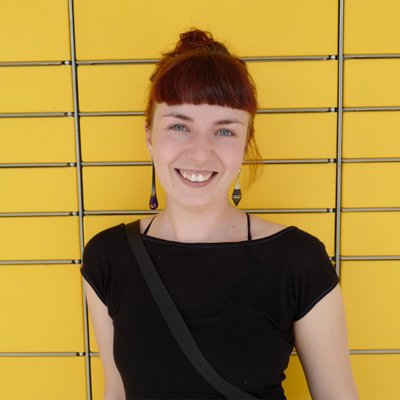Spatial Designer and former Community Manager at Tiny Rathaus Kiel

In your opinion, what is the greatest potential of local citizen engagement for our society?
The engagement of citizens in local projects and development provides wide-ranging approval. Of course, there are many different practices that can be called "participatory". If processes and criteria are presented transparently and comprehensively, participation can lead to better connections between cities and municipalities. The greatest potential lies in the knowledge of the people who live in a certain place, and making this knowledge accessible and useable. In the case of societal division and the increasing gap between political and social topics, participation and citizen engagement can help to open up the space for discussion and productive exchange. In my opinion, it is a key skill and tool for an appreciative and respectful interaction that can develop solutions for local and superior problems of our times like climate change, right-wing populism, financial gaps, etc.
How do infrastructures matter for citizens?
Thinking of infrastructures as tools for connection, mobility connects people with places and other people, education connects people with knowledge and personal growth, and technical infrastructure connects people with everyday needed tools like electricity, water, heating, and so on. I think it is all about connecting people to someone or something. So, it is one of the most important things to think about when you question where to live and what kind of infrastructure you need and want to have for a good life.
How should knowledge about infrastructures be communicated and what role can journalists, researchers or public officials play?
The question about roles and communication is an interesting one: At my work with the Tiny Rathaus and also in my private life, I see a lot of my (and everybody else's) time going into researching infrastructure topics like dealing with insurance, mobility, further education, flat or house hunting, and so on. The most asked question at Tiny Rathaus was: "Can I get my passport done here?" and everybody was happy when we at least could help them find a good way or explain the way to get their passports done at the "big" town hall in an easy way, even if we could not deal the question by ourselves at Tiny Rathaus. In the case of Kiel's municipality, there is a huge website with nice explanations for all municipal administration services but still a lot of people do not know about it. I think it is important to constantly inform about it and in different social languages, like a professor at the university will inform themselves in a different way than a craftsman*woman. Every profession has its own communication style and there could be even more ways to inform the people, like easy information points in the streets or handouts and welcome events for new citizens with the most important information on it and where to get more. Let´s get creative and encourage participative action to solve the problems!